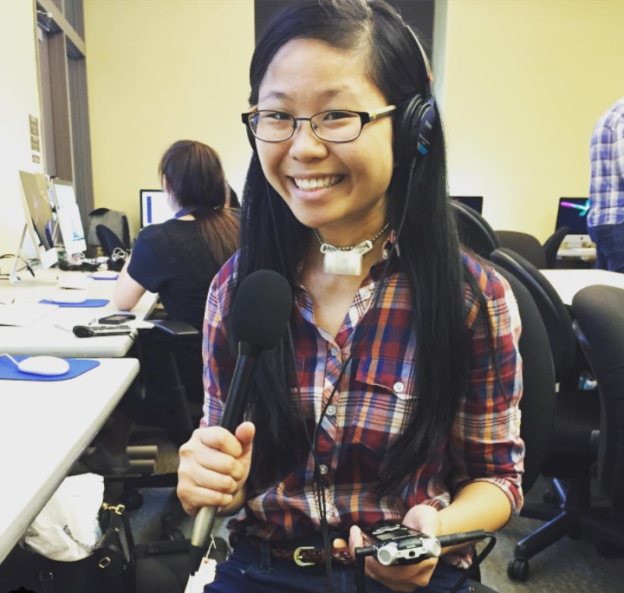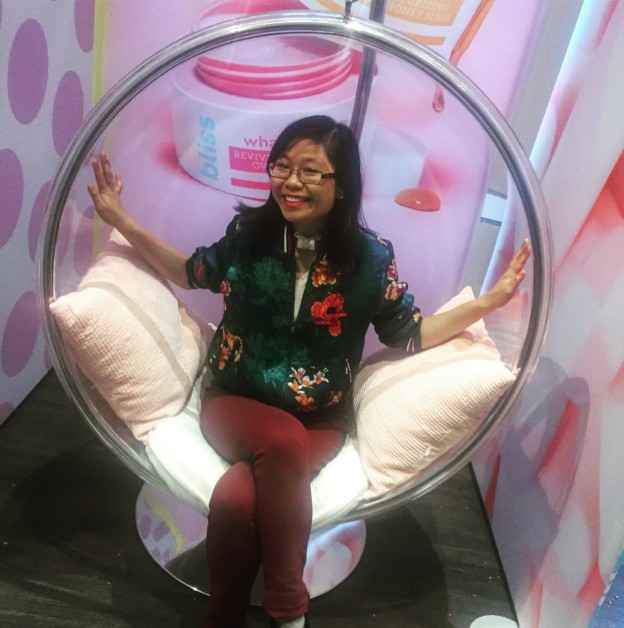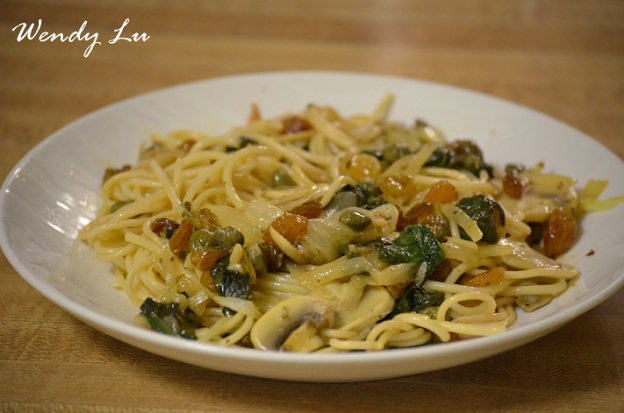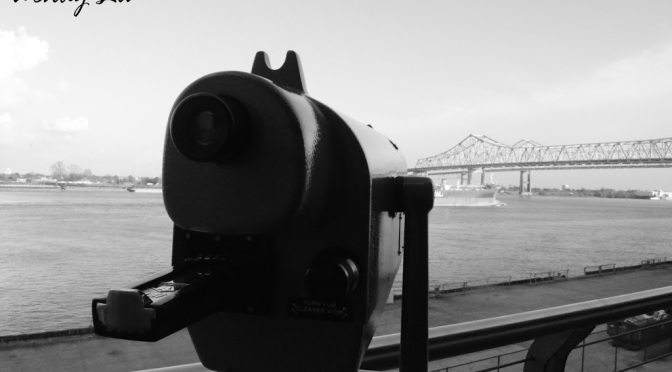#DailyWings: “I’m a story-teller. I tell stories. In some stories, I am the story. But the story transcends me. How? Hear my stories.” –Guy at your J-school
Happy November! It’s taken me a while, but I’ve finally finished putting together this blog post about my experiences at Columbia Journalism School (as promised), along with several nuggets of advice for prospective students — brought to you by the Class of 2016. :)
For those of you who might be new to my blog, I’ve talked about my journey to New York City in previous posts. I often tell people that going to graduate school for journalism was one of the best things I’ve ever done, even though it was also one of the most difficult. I had already obtained a bachelor’s degree in journalism from the University of North Carolina at Chapel Hill, which is considered an excellent program and taught me the fundamentals of professional writing, editing and reporting. Columbia Journalism School was on a whole other level — basically UNC’s j-school on steroids.
Before we dive in, there are a couple of things to keep in mind: One, I’m mainly focusing on the M.S. program, which is designed for students with various levels of journalism experience. The M.A. program is geared toward experienced journalists who want to focus on a particular beat. There are also the dual-degree and PhD programs for people looking for an even more specific educational experience. Two, while I think the j-school (like many things in life) can definitely use some improvements, the quality of your experience largely depends — up to a certain point — on how much effort you’re willing and able to put into it.
Because I’d just spent four years writing local news and magazine features, I knew that I wanted to acquire some new skills in graduate school. So I took an advanced photojournalism class, two investigative reporting classes (including one focused on the health care beat), Multi-Platform Design & Storytelling, and Narrative Writing.
Columbia j-school is difficult mainly because of the massive amounts of work you’re expected to complete in just 10 short months. In some ways, I wish it had been a longer program (perhaps even two years) so we could dive deeper into our classes and our master’s projects. And while Columbia’s roster of journalism professors is top-notch, you might click more with others. I was incredibly lucky to have some amazing professors who taught me almost everything I know today about what it means to be a good reporter, particularly Karen Stabiner, Bruce Shapiro and Howard French. You also get access to excellent career counselors and services that continue even after graduation.
One thing I’m really grateful for is that going to Columbia Journalism School helped me reach some of my biggest dreams — even ones that I didn’t even know I had until they happened. I got to do a lifestyle fellowship with Bustle.com (my dream next step at the time), and I interviewed celebrities like George Takai, Grandmaster Flash and Andrew Lloyd Webber for stories that I’m really proud of. I also published my master’s project in the New York Times six months after school ended.
A common question that people ask me is: What do you get out of j-school — contacts or skills? Depending on how much you’re willing to work and network, the answer is both. I mentioned earlier that you (mostly) get out of the program what you put in. J-school doesn’t guarantee you a job or major byline. Rather, it gives you the lessons and tools you need to be a great journalist. You also need to be willing to put in passion and work.
That means gathering sources, leaving the Upper West Side to do reporting elsewhere in the city, looking for stories in unlikely places, editing story packages for hours, and following up with contacts you meet at events. Unfortunately, this takes a lot of time and energy. It’s important to check in with your physical and mental health — in fact, I’d say always make some time for self-care.
You’ll eventually have to make some sacrifices, especially when it comes to how best to spend your time, which really sucks but might serve you better in the long run. Some advice-givers might say, Go to all the events. Do as much as you can. Take advantage of everything. I agree with that only up to a certain point. If you’re caught between going to a cool-sounding event and editing a video for another grueling four hours, go to the event. If the j-school is hosting an entire conference and all of those panels sound interesting, pick your top three — really listen, take notes, and connect with the people who are at those three events.
Another question people like to ask is: Was it worth $60,000+? It’s a tricky question, and honestly, it’s going to depend on your goals. Do you aspire to become an investigative reporter? Are you interested in data journalism and media innovation? Or do you want to become a media mogul and run your own multi-million dollar publishing company? At the end of the day, what do you hope to get out of attending graduate school for journalism?
And even if you’re a seasoned journalist, you will still learn a lot depending on the classes you take. I’d previously taken several writing classes at UNC including news writing, magazine writing, copy editing, feature writing, and community journalism. I also had an interest (and at least some level of skill) in photography, but no formal training. So my medium of focus at Columbia wasn’t writing — it was photojournalism. I took a couple of intermediate photo classes and completed a photo essay for my final master’s project, which eventually got published in The New York Times. (Thus, what many people don’t know is that my Times piece was primarily adapted from a photo project).
The bottom line: Columbia Journalism School is really difficult and you might feel like a failure most of the time (just because there is so much to do and not enough time), but the truth is that pretty much everyone in j-school is going through similar stress, so you’re not alone. And while those of you who are already enrolled might feel the way I did during the first couple of days (that is, a pony in a world full of unicorns), remember that you applied and got in for a reason. And that reason is because you have something unique to offer the world of journalism.
For this next part, I asked my fellow j-school classmates for their insight into everything from the application process to the difference between full-time and part-time programs.* Keep in mind that this is a non-exhaustive guide; also, depending on when you apply and other various factors, your experiences may be very different from what you read below. Take whatever advice that works best for you.
On applying:
For the writing test, brush up on major news events (both in the US and around the world) and key figures in politics, sports, Hollywood, etc. as much as you can. Reading the news helps so much; if you do that, it shouldn’t be too difficult.
It’s okay if you don’t have a journalism background. Don’t be deterred if you don’t have a journalism degree or haven’t done a lot of journalism already. They’re looking for people with critical thinking skills and motivation. They’re also looking for a student body that’s diverse, or maybe has characteristics that aren’t overtly related to journalism.
Columbia is hella expensive, so apply for as many scholarships and other financial aid as possible.
On the community:
It’s definitely better to be collaborative than competitive. That said, don’t be a dick and pitch someone else’s idea as your own. I saw that happen twice (from two different people) while at the j-school.
Read your professors’ books and articles so you have something to make awkward small talk about if you end up in the elevator together.
Get into a class with Kevin Coyne. I so wish I had taken his class, but was fortunate to have him as a master’s project adviser. He is so incredible. A great balance of nurturing and helping you to push boundaries with your writing/reporting.
Talk about the stories you’re working on. You never know who might have a contact to a source(s) you need. In return, talk to your fellow journos/classmates about what they are working on to see if you can help. If possible, pitch everything you write at Columbia Journalism School to a news outlet. How? Same way you find sources. You can find editors through guest lectures, friends, professors, mastheads, LinkedIn, Twitter, etc. Don’t be scared to cold pitch!
On differences between programs:
The master of science (M.S.) program only lasts about a year, which is shorter than a lot of graduate programs. So cherish your time and challenge yourself.
PT: I could write a whole long post about the part-time program, but I’d say my biggest advice for part timers is to take advantage of as much as possible. We’re there for two years… soak it in.
PT: Everyone should benefit from each other’s background and experience. Lots of part-timers are career changers or already working in the field. But there are more international students in the full-time program. One of my favorite parts of seminar and production classes was getting to mix in with so many different people with so many rich experiences.
PT: You have to choose classes that fit with your schedule… so if you work M-F, you’ll take evening classes (sucks when it comes time to choose S&P because there are only so many offered in the evening). The essentials classes are pre-scheduled and are all during evening hours. It definitely doesn’t feel like the full-time program…but if you have a job it is a lot to carry.
FT: On one hand, it was really hard to do it all in just 10 months. It’s stressful and takes a toll on your physical and emotional well-being (just being real). On the other hand, you’re hyper-focused on the program and you don’t have any other jobs, commitments, etc. to distract you from journalism. At the same time, I also recognize that being a full-time student is a privilege; not everyone can afford to go to graduate school full-time without having a job or some sort of income in the meantime. So do what’s best for you.
On reporting:
If you’re new to journalism, make sure you get practice in the basics — Learn what to do in a breaking news situation, learn to read court documents, things like that. Read and watch local news — It will help you learn the city and develop a sense of the day-to-day stories that people care about. Not every story is going to be a 1,500-word feature.
Talk to anyone who will listen, especially people who aren’t reporters. It will help you figure out what to focus on and what questions you need to answer.
If you have background/strength in some other area, consider making it your beat, even if it’s not what you want to do long-term. Having that expertise could set you apart during the job hunt.
As far as master’s projects go, I wish that before I’d chosen a subject on my own, I’d reached out to some editors and asked them, “What’s something you’ve been wanting to look into, but haven’t had the time and resources for?” Now that I’m turning around features on a much shorter timeline, I often find myself wishing I had six months to work on stuff, even though it felt like torture at the time.
Drink a lot of water and stay hydrated. Seriously. I always forgot to drink enough water. Make time to exercise–run, walk, play a sport–even if it’s just an hour a week. Anything to get you outside and out of the cubicles.
*Some entries may be edited for length.
Many thanks to my fellow j-school friends from the Class of 2016 for responding to my random Facebook post asking you to relive your j-school days (and nights) for this blog post. You all rock.










Thanks for this! I’m taking the writing test this evening and your blog here helped calm my nerves.
Hi, I will be taking the writing test in a couple of days and am very nervous. Any tips?
I am from India.I am a engineering student.But I want to become a journalist.I want to pursue MS in J school.I love writing.can you help to reach my goal and purue my dream
Thank you, Wendy! This was all really helpful information and answered a lot of questions I had.
Thanks for the great tips! I’m taking the writing test on Sunday. By the way, I read your New York Times article and loved it! I’ve noticed a bit of a lack of coverage when it comes to people with disabilities and as someone who has worked with both deaf and blind communities in the past, it was incredibly refreshing and interesting to read.
I’m glad you had a wonderful experience. I read your blog before applying and listened to you this year. My experience to date has been horrible. Every time I think it will get better it gets worst. I find some of the instructors unprofessional and the Deans don’t do anything to correct the issue. There are quite a few issues that have been going on for years and are not addressed. If Columbia J-School can’t deliver, they should make this very clear for students before they apply. Here are my concerns:
1. International students cant publish or get a CPT where CUNY’s J-School does this
2. 90% of the white students don’t really mix with nonwhites
3. They have a problem with older students. If you are over 35 do not apply to the MS program.
4. Not enough scholarships are given and if they are, they are given to students who really dont need it
5. They treat the students like kids One professor has a seating plan, another said no washroom breaks
6. They are not honest about what courses you take or how to pick electives. For example, many students were not aware of the essentials.
7. Some of the popular professors are often absent and the class is taught by TAs
8. When students ask for help many professors say “google it”. Why are students paying money to google something
9. Some of the adjunct professors are not teaching. Seriously and no one will complain because they need references and a degree.
10. Some of the club’s faculty advisors/sponsor promise to do something like provide mentors and they don’t. They don’t even apologize.
They are definitely some students who are having a good time but there are a lot of complaints.
Oh no, that’s so disappointing. I’m so sorry you’ve had such a horrible experience so far. I know international students are very limited in their options post-graduation and Columbia should provide more support for them. (That’s also definitely an area where I have more privilege.) It sounds like a lot of these issues are deep-seated and require a larger overhaul. The part about no washroom breaks is especially concerning to me because that’s a health and accessibility issue. I completely recognize that even though I had an overall positive experience, it is also true and valid that others have had negative experiences as well. I don’t know if it’s possible for your cohort to have a forum of some sort or even an anonymous feedback system, but I think it’s important for the school to hear from you all. And there’s strength in numbers if enough students are having similar issues.
OMG. :( I’m 36 and I’m set to join the FT MS program this fall. Reading your comment made me rethink my decision to fly all the way here and take out a loan. :( I’m so sorry your experience is horrible. I really hope it improves.